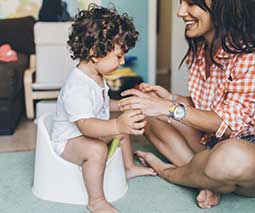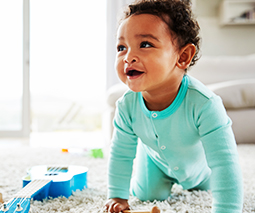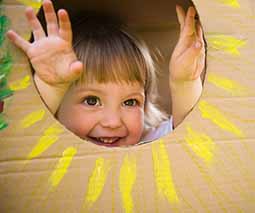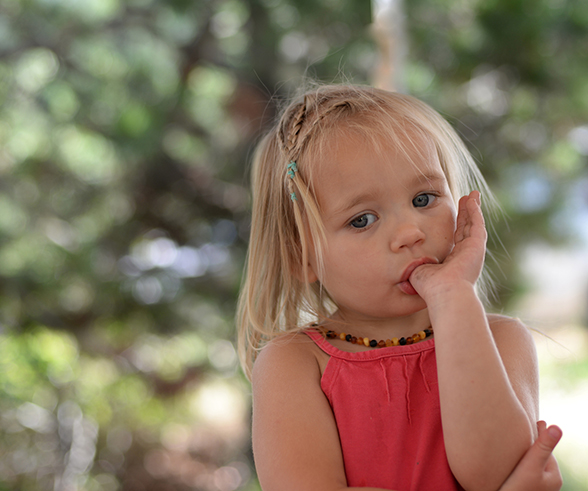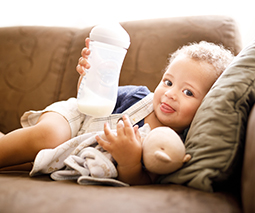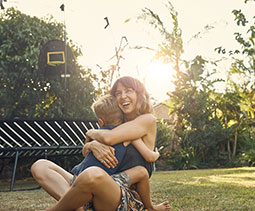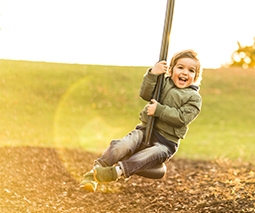One of my greatest fears: Skills you most want for your child if you die

Every night I put my daughter to bed. We chat, read her favourite book and then I sing the same songs I’ve sung for the last four years. If she’s chucked a wobbly that afternoon or day, I use that opportunity to talk to her about it.
The other night, we were dissecting one tremendous meltdown that happened right before I went to my yoga class that night.
I asked her why she got so upset and she said she hates it when I leave her. I hugged her tight and said, “But I always come back, don’t I?”
In the darkness of the bedroom with her little soft body in my arms, I realised I had told her my first significant lie.
The truth is I can’t guarantee I will always come back.
One of my greatest fears as a parent
I can barely bring myself to think about my own death.
Of course, it’s not something one wants to muse over on a casual Friday night. I’m human, after all. It’s part of our DNA to fear death.
It’s the thought of how it would impact my children – still so young. I’m an adult and the thought of losing my own parents brings me to my knees – how would my children cope at such a young age? While they are still so dependent on me for love, guidance and self-confidence?
I remember commentator Jane Caro telling an interviewer that she suffered from anxiety until she got to an age that she knew her kids would be OK if she died.
I get that. For the first time I started to think, what can I give my kids now, if the worst were to happen?
I decided to ask some of my most trusted experts what they’d want their own children to have if they were no longer around. Here’s what they said.
Karen Young – child development expert and founder of Hey Sigmund!
For sure, my answer on this would be ‘courage’. If I wasn’t around, the essence of me hopefully would be in their values, their internal compass, and that voice inside them that tells them what feels right, what doesn’t, what’s important, and what isn’t.
I would want my kids to have courage to hear that above the noise, and to listen to it. I would want them to have courage to reach out their hands and ask for help when they needed it, and courage to discover their own strength and resilience. I would want them to have the courage to be fierce, kind and compassionate.
Most of all, I would want them to have the courage to discover and claim their own important place in the world, and to know that I’m beside them, all the way.
Anthony Semann – early childhood researcher and educator
The skills I would want to leave behind for my child would be the ability to mute the negativity that life throws their way, and to understand the power of determination in achieving their dreams. The combination of these can be the formula for a successful life, as it would offer them the resilience to ride adversity and the fuel to translate every dream into a reality.
Maggie Dent – parenting educator
Teaching your kids that tough times happen to everyone – and the way we recover or heal in a way that lets us feel happy again is through the help of people who love us. Kids can also help others who are finding things tough – this is so important. Teaching thoughtfulness, empathy and compassion for others is going to help them right through life. It is a way better pathway to building genuine resilience than simply toughening them up!
Always talk of hope – that things always get better when we look for the sunshine instead of just the storm clouds. An optimistic mindset can be encouraged when kids are young. Talk about how emotions come and go, and that we can choose to do things that make us feel happy. We can restore ourselves.
Imagination can be a fabulous way to talk to children. For example, ‘I will become the brightest star in the night sky, waiting until you come and join me when your time comes’. This metaphor can really be a comfort to kids.
Teach them every day
Reading the above advice, I feel comforted. It appears that the best thing I can leave my children is part and parcel of how I want to parent them every day. To teach them kindness, compassion, self-love and courage.
Ultimately, we leave our children all the time. To go to work, to exercise or to see some friends. How we want them to be when we’re not there is going to be the same – whether we’re coming back or not.
And that feels like something that we can teach every day.
